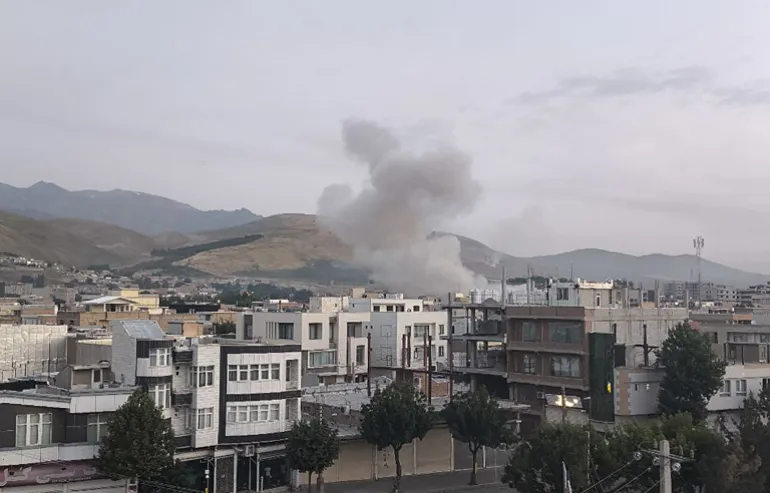Israel’s next military move in Middle East

InfoNews9, June 2025
The rising tension and direct actions between Israel and Iran in West Asia have created a great stir in international politics and security systems. In retaliation for the missile and drone attacks carried out by Iran on Israel, Israel has carried out a major airstrike and destroyed several military bases and weapons depots in Iran. But even after this counterattack, Israel’s anger has not stopped.
The Israeli military and political leadership have clearly indicated that along with Iran’s direct actions, they will also focus on its proxies (i.e. Iran-backed groups). Therefore, Israel may attack Iran-backed groups in Lebanon, Gaza, Syria, Iraq and Yemen in the coming days.
1. Lebanon – Hezbollah is a direct threat
‘Hezbollah’ in Lebanon is a Shiite terrorist group that is fully supported by Iran. The group has been creating constant tension on Israel’s northern borders for the past several years. In late 2024, Hezbollah launched several rocket and drone attacks, which have become a serious security threat for Israel.
Israel has made it clear that if Hezbollah is not stopped, it will launch a full-scale attack on the terrorists in Lebanon. This could plunge the entire Lebanon into a war.
Hezbollah is estimated to have more than 1,00,000 rockets, which are capable of hitting the interior of Israel.
2. Gaza Strip – Action against Hamas again?
In 2023, there was a fierce conflict between Israel and Hamas. After that, Israel carried out a large-scale military operation in the Gaza Strip. However, many of Hamas’ leaders are still missing.
According to Israeli intelligence, some of Hamas’s top leaders have taken refuge in Qatar, Turkey, and Egypt. Israel is planning covert operations to take action against them.
3. Syria – Iran’s secret military bases
Iran has set up several weapons storage centers in Syria. These centers are used to supply weapons to Hezbollah and other proxy groups.
Israel has carried out airstrikes in the cities of Damascus, Aleppo, and Homs several times in the past two years. But as new weapons are constantly being built in these places, Israel is likely to strike again.
4. Iraq – Iranian-backed militia groups
Groups such as the “Popular Mobilization Forces” (PMF) and “Kata’ib Hezbollah” operating in Iraq operate under Iranian control. These groups are always ready to attack American and Israeli interests.
Israel can carry out special strikes or cyber operations in Iraq to dismantle these groups.
5. Yemen – Houthi Rebels’ Activism
With the support of Iran, the Houthi rebels in Yemen have launched several attacks against Saudi Arabia, the UAE and Israel. According to Israel’s aerial defense system, missiles have been tested from Yemen that will target Israeli ships in the Red Sea.
The Houthi rebels’ bases are also on Israel’s radar.
Israel’s strategy: Not just defense, now attack!
Israel traditionally took a defensive stance. However, it has now radically changed its military and political strategy and adopted a policy of “pre-planned attacks and destruction of terrorists’ bases.”
Under this strategy:
• Covert operations based on intelligence information
• Use of drones, long-range missiles
• Impact on infrastructure through cyber attacks
Global Reaction
• US: While supporting Israel’s right to self-defense, the US has called for restraint from all sides.
• Russia and China: Criticizing Israel’s aggressive policy.
• United Nations: Calling on all parties to find a way through talks and dialogue to maintain peace in West Asia.
After Iran, Israel’s target has now shifted to Iran’s proxy network. Therefore, the possibility of renewed conflict in Lebanon, Gaza, Syria, Iraq and Yemen is very high. Israel’s objective is clear – the permanent destruction of every group that poses a threat.
This instability in West Asia is becoming a matter of concern for the entire world. Because this conflict can affect energy prices, cause migration problems and lead to major upheavals in international politics.